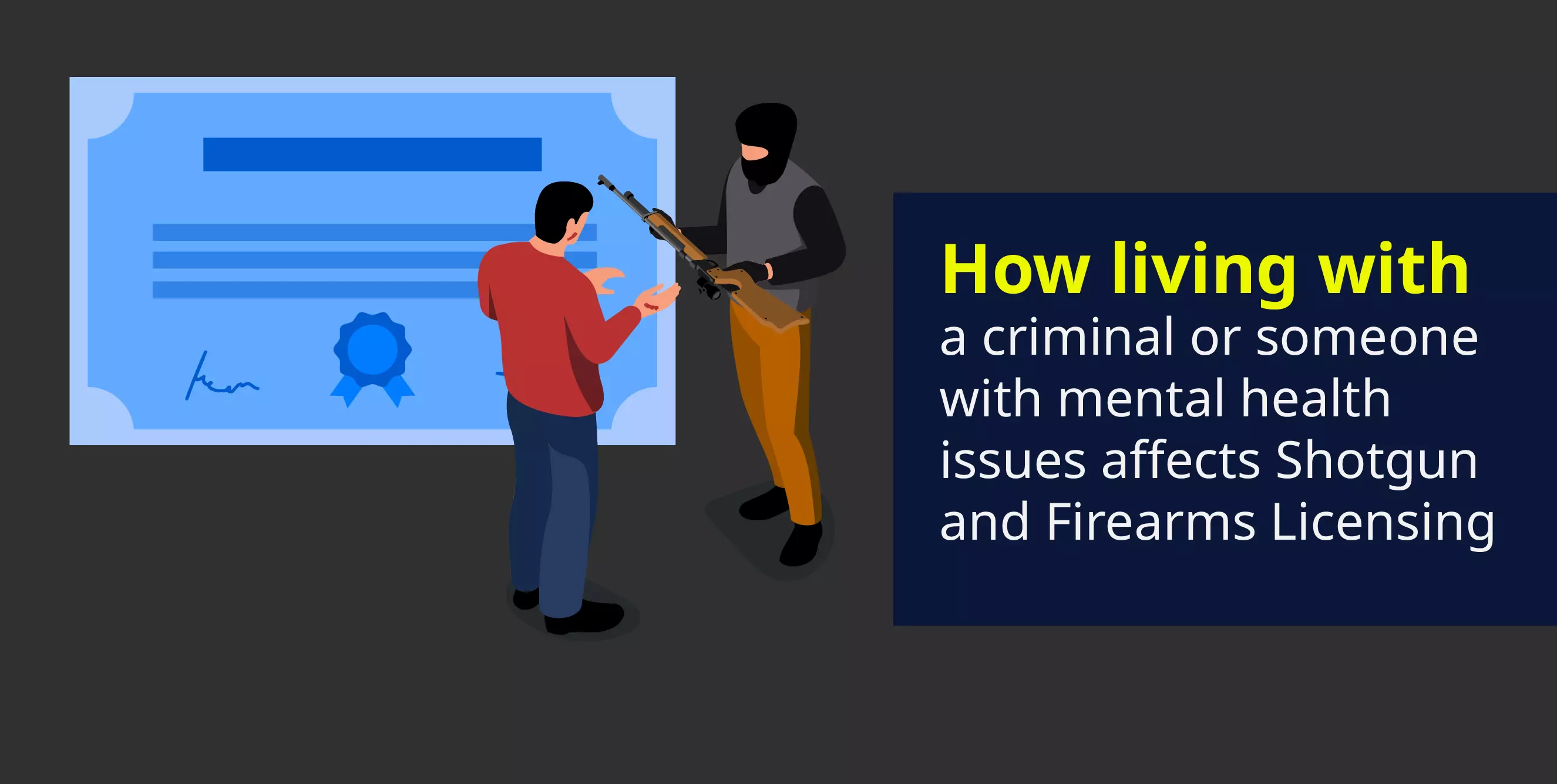How living with a criminal or someone with mental health issues affects Shotgun and Firearms Licensing
01-Aug-2024

Mark Eves
The tragic Plymouth shooting on August 12, 2021, in which a gunman killed five people and then himself, led to significant changes in the UK's gun licensing laws.
The Home Office announced updated guidelines for firearms licence applications following the incident. These changes were primarily focused on enhancing the scrutiny of applicants' backgrounds, including a requirement for police to investigate social media posts of firearms licence applicants and current holders
The new guidelines were part of a broader initiative to strengthen gun control measures, reflecting a shift towards more rigorous assessment of potential risks associated with firearms ownership. A significant aspect of these new regulations is the consideration of the backgrounds of not just the applicants, but also those they live with, including family members with criminal histories or associates, and even mental health issues.
This shift marks a notable change in the way gun ownership is approached, prioritising community safety over individual rights in certain circumstances.
A shift in focus
Traditionally, gun licensing has primarily focused on the individual applicant's background, assessing their criminal record, mental health, and general suitability to own a firearm. However, the new regulations expand this scrutiny to include others residing in the same household.
Parents and their children
Consider the case of John, a law-abiding citizen with a passion for hunting. He needs to renew his gun licence, confident in his clean record and responsible attitude, and years of hunting experience.. However, unknown to John, his 18-year-old son, Alex, has recently become involved with a local gang at school. This affiliation has not led to any criminal record for Alex yet, but it raises serious concerns about the potential risks of having a firearm in the house.
Under the new regulations, John's renewal is closely scrutinised. The authorities, aware of Alex's associations through school reports and community intelligence, deem the presence of a firearm in the household a potential risk. They worry that Alex, influenced by his newfound peers, might access the gun, intentionally or unintentionally leading to dangerous situations.
A key challenge in this scenario is the age of John's son. As Alex is over 18, he is legally an adult, and privacy laws restrict the amount of information that can be shared with his parents without his consent. This means that when John's application is denied, he may not be fully informed about the reasons, particularly if they pertain to Alex's activities or mental health, assuming there are concerns in that regard.
Living with a convicted criminal
Under the new law, if you live with someone who has a criminal record, it could significantly impact your ability to obtain a gun licence. This change stems from concerns about access and potential misuse. The law aims to prevent scenarios where a firearm, legally owned by one resident, could potentially be accessed by another with a criminal background.
Cohabiting with someone with mental health issues
Similarly, sharing your living space with someone dealing with significant mental health challenges can also affect your licence application. The rationale here is the risk that firearms in the home might pose in situations of mental health crises. It’s a precautionary measure to reduce the risk of harm, both to the individual with mental health issues and others.
The reasoning behind the changes
These changes are not without reason. Statistics and case studies have shown that access to firearms in a household with individuals who have a criminal history or mental health issues can lead to increased risks of accidents, misuse, or even violence. The law aims to create a safer community by ensuring that firearms are accessible only to those who are deemed responsible and without such risks in their immediate living environment.
What this means for prospective gun owners
Prospective gun owners now need to be aware of these considerations. It means more thorough background checks, not just of the applicants but also of those they live with. It's no longer just about your relationship with firearms, but also about the environment in which the firearm will be kept.
This development in gun law is a balancing act between the rights of individuals to own firearms and the broader community's safety. It represents a shift towards a more holistic approach to gun safety, acknowledging that the potential risks extend beyond the individual gun owner.
While the intent behind these laws is to prevent gun-related incidents, they have sparked debate. Critics argue that these measures may unfairly penalise law-abiding citizens for the actions or conditions of those they live with. There are also concerns about privacy and the rights of adults living in the same household as the applicant.
Must read:
